For many computer savy users this is the eternal quest, with no end in sight looking into the (uncertain) future of computing power. It has to be somewhat user-friendly (easy, fast, few clicks to get results), but it also has to be unbreakable, preferably even for the idiots at the NSA, and even when quantum computing power hits mainstream. For my daily use this meant that I went from using TrueCrypt volumes (for a long time) to using VeraCrypt volumes (not so long), to now using ProxyCrypt volumes. ProxyCrypt may not be the most user-friendly of them all (although you could argue that it is, since you can script everything you ever need to do with it, unlike with most other software), but it sure is the fastest because it supports scrypt. ProxyCrypt works as a proxy for the ImDisk Virtual Disk Driver too, meaning you get to have read/write speeds emulating those for a RAM disk, if your processor is fast enough. CPU power and free RAM aren’t much of an issue for me anymore. Using DDR memory as a proxy for physical storage has become a mainstay for me recently, saving my SSD/nvme/nand/flash storage media from a few write-cycles so they last a lot longer than they normally would. For that I use SoftPerfect RAM Disk, which is one of the fastest around. I have tested and tried most known RAMdisk options for Windows, that one has a decent UI, and is really smooth at recreating RAMdisk at boot;
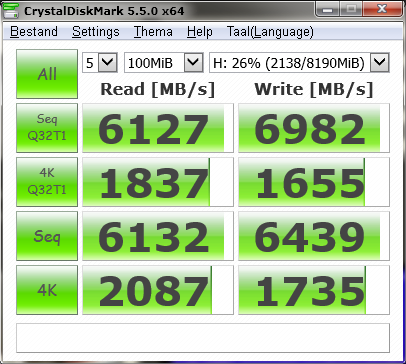
These are speeds unheard of for the average SSD even, so you really notice that when you put your Mozilla profiles on them for example.
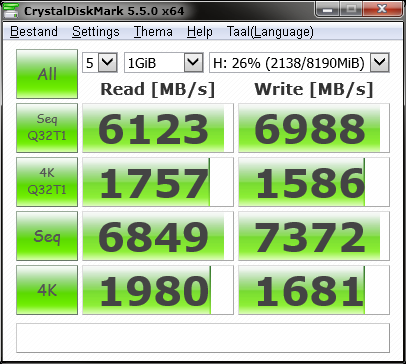
Last but not least I don’t want 1 point of failure to store these volumes or images (that swap from and to RAM) on, so I use CoveCube’s StableBit DrivePool to make storing volumes or images really redundant, something I can rely on. The people of CoveCube are my heroes, since they provided me with a free license just because I promoted them once on twitter.
update october 2019
Did some bench-tests on my main in-use desktop PC. The RAMdisk tests (left 2 columns) show slower speeds than the ones I did last year because the same RAM is running at a lower speed now (no overclocking/pushing it), which I decided to do after experiencing lower stability with some IO-heavy RAM-heavy software;
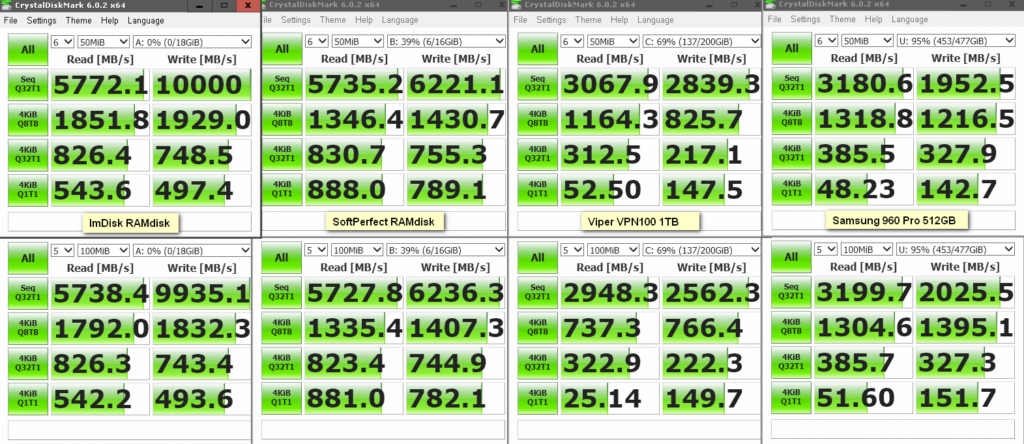
Obviously the latest ImDisk version now beats SoftPerfect for RAMdisk writes, but only with files bigger than ~12 kilobytes, so if that’s your target usage; It’s free! A bit hard to config for intermediate automated disk-backups of the volatile RAM-storage though. Its UI is not very user-friendly, as opposed to that of SoftPerfect. And I recommend using a UPS, if even a small one, for the shit event of a power outage. Gives yourself time to write the RAMdisk to permanent storage.
Quite disappointing is the score for the latest NVMe M.2 I bought (PatriotMemory’s Viper VPN100 1TB), it’s barely faster than Samsung’s 960 Pro. Did not expect that.
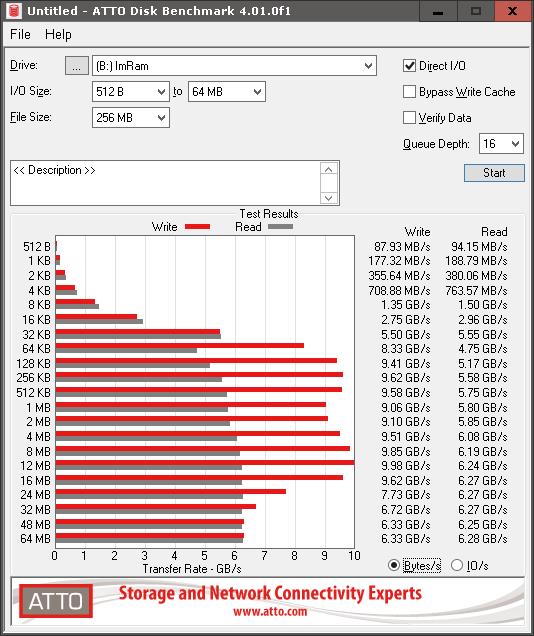
^ ImDisk RAM-disk (Version 20190924)
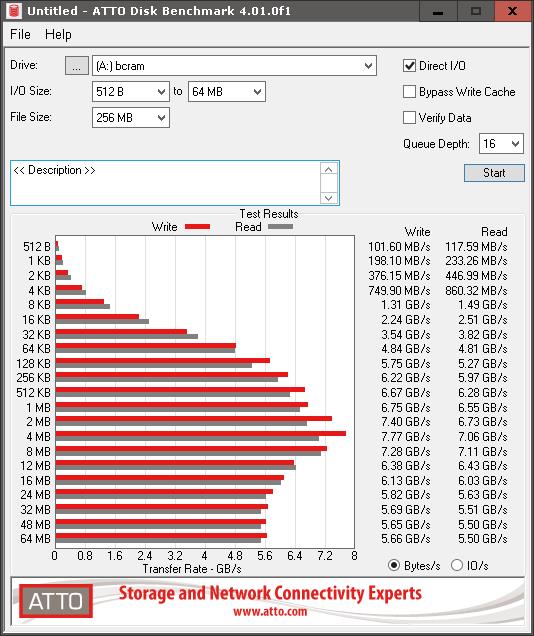
^ SoftPerfect RAM-disk (Version 4.0.8 x64)
For now my RAMdisk software-maker of choice still remains SoftPerfect, but only because I’m too lazy to arrange the write-RAM-to-disk-at-x-interval scripting for ImDisk. They should post their code onto github, the core is blazing fast, but its UI can really use some improvement. Many of the RAM-disk apps I’ve tried have trouble dealing with the order to handle things at boot-time. Some allow using the RAMdisk for system temporary storage ( %SystemRoot%\TEMP ) but that’s not working if Windows does not see it at boottime. I’m tempted to switch to ImDisk, because Softperfect now wants me to pay for updates. Hate when people do that.